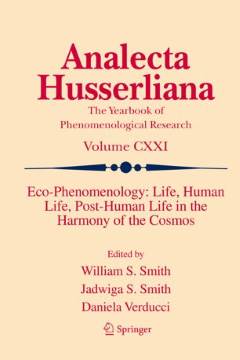Repository | Book | Chapter

(2018) Eco-Phenomenology, Dordrecht, Springer.
Eco-phenomenology is a new developing trend, but its roots can be traced to philosophia naturalis (life philosophy), the philosophies of Schelling, Nietzsche, Bergson, Husserl, Merleau-Ponty, and other philosophers. The ecological turn in phenomenology is prompted by authors dealing with the problems of the human being – nature, life, the Universe. Eco-phenomenology and eco-philosophy are different teachings, eco-phenomenology being more theoretically fundamental while eco-philosophy until now more politically oriented. Eco-phenomenology appeals to us to look "Back to the Earth itself," but that it is not enough to solve the question of the nature of nature and to recognize the meaning of natural reality in phenomenology. The basic issues for eco-phenomenology can be found in A.-T. Tymieniecka's phenomenology of life. Her teaching actually is eco-phenomenology developed in a systematic way with new concepts. Many concepts of her phenomenology of life can be cornerstones for eco-phenomenology: Logos and life, the Unity-of-Everything-there-is-Alive, ontopoiesis, the individualization of life, and imaginatio creatrix. Here are offered additional eco-phenomenological concepts which could be termed the fundamental phenomena unifying the world's natural, human, cultural and symbolic dimensions – light, rhythm, silence, place.
Publication details
DOI: 10.1007/978-3-319-77516-6_5
Full citation:
Kule, M. (2018)., Eco-phenomenology: philosophical sources and main concepts, in W. S. Smith, J. Smith & D. Verducci (eds.), Eco-Phenomenology, Dordrecht, Springer, pp. 43-58.
This document is unfortunately not available for download at the moment.



